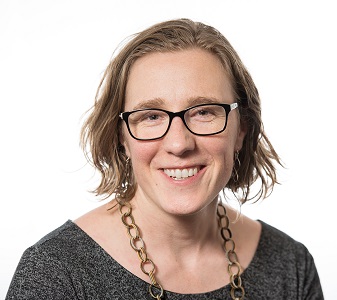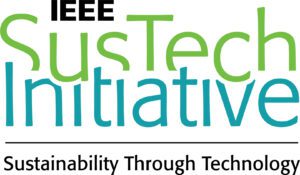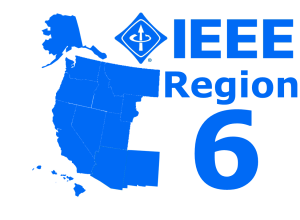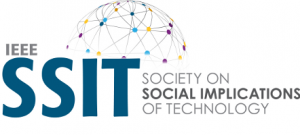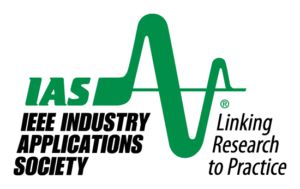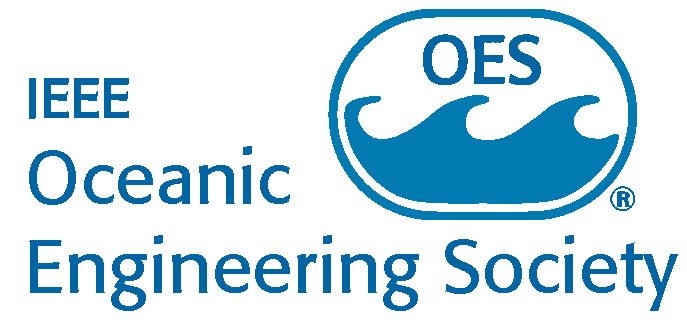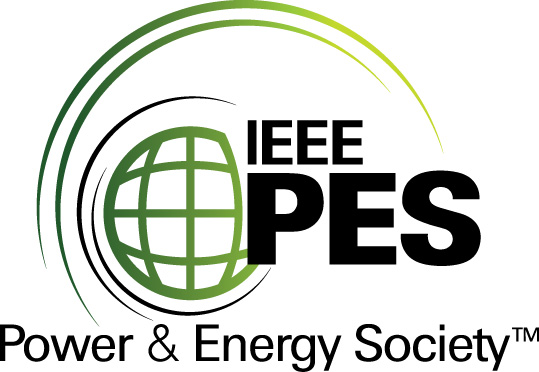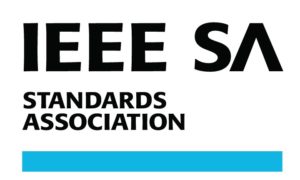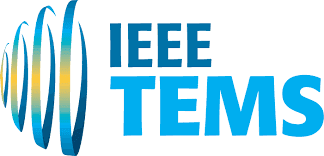Keynotes 2018
Download PDF of Keynote Speaker Program
| Monday Morning | RAPID: Robot Assisted Precision Irrigation Delivery Stefano Carpin, Department of Computer Science Engineering, University of California, Merced |
| Monday Lunch | Entrepreneurship and Sustainable Technology: Differences, Challenges and Opportunities Mark Werwath, Northwestern University |
| Monday Dinner | Photovoltaic Solar Power Generation Problems, Issues and Solutions Dr. Peter Gevorkian, President, Vector Delta Design Group |
| Tuesday Morning | Growing Atmospheric Pollution in Asian Countries: Threat to Environment Sustainability Ramesh P. Singh, Ph.D., Chapman University |
| Tuesday Lunch | Introducing the Grid Project Impacts Quantification Web Calculator (GridPIQ) Karen Studarus, Pacific Northwest National Laboratory |
Monday Morning Keynote
RAPID: Robot Assisted Precision Irrigation Delivery
Stefano Carpin, Department of Computer Science Engineering, University of California, Merced
Abstract:
Agricultural irrigation consumes about 70% of the world’s freshwater. Emerging sensing technologies such as UAVs equipped with heterogeneous sensors can provide farmers with detailed maps of water use and ground conditions. However, closing the sensing-actuation loop to adjust irrigation at the plant level remains an unsolved challenge. RAPID (Robot Assisted Precision Irrigation Delivery) explores an alternative approach whereby a team of humans and robots move through fields to adjust low-cost adjustable drip irrigation emitters. RAPID is designed for cost-conscious farm managers to be retrofit to existing irrigation systems and incrementally expanded to increase irrigation precision and reduce water usage. The project involves the design, development, and evaluation in the field of robust co-robotic systems compatible with existing drip irrigation infrastructure in vineyards and orchards.
Speaker:
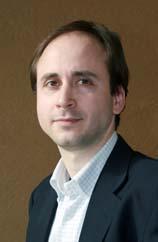 Stefano Carpin is Professor and Chair of the department of Computer Science and Engineering at UC Merced. He received his “Laurea” (MSc) and Ph.D. degrees in electrical engineering and computer science from the University of Padova (Italy) in 1999 and 2003. Since 2007 he has been with the School of Engineering at UC Merced, where he established and leads the UC Merced robotics laboratory. His research interests include mobile and cooperative robotics for service tasks, and robot algorithms. He published more than 100 papers in international journals, conferences, and workshops, and he is a Senior Member of the IEEE. He is an associate editor for the IEEE Transactions on Automation Science and Engineering (T-ASE), an associate editor for the IEEE Robotics and Automation Letters (RA-L). In 2018, he won the Best Conference Paper Award at the yearly IEEE International Conference on Automation Science and Engineering (CASE). Since he joined UC Merced his research has been supported by the National Science Foundation, DARPA, USDA, the Office of Naval Research, the Army Research Lab, the Department of Commerce (NIST), the Center for Information Technology Research in the Interest of Society (CITRIS), Microsoft Research, and General Motors.
Stefano Carpin is Professor and Chair of the department of Computer Science and Engineering at UC Merced. He received his “Laurea” (MSc) and Ph.D. degrees in electrical engineering and computer science from the University of Padova (Italy) in 1999 and 2003. Since 2007 he has been with the School of Engineering at UC Merced, where he established and leads the UC Merced robotics laboratory. His research interests include mobile and cooperative robotics for service tasks, and robot algorithms. He published more than 100 papers in international journals, conferences, and workshops, and he is a Senior Member of the IEEE. He is an associate editor for the IEEE Transactions on Automation Science and Engineering (T-ASE), an associate editor for the IEEE Robotics and Automation Letters (RA-L). In 2018, he won the Best Conference Paper Award at the yearly IEEE International Conference on Automation Science and Engineering (CASE). Since he joined UC Merced his research has been supported by the National Science Foundation, DARPA, USDA, the Office of Naval Research, the Army Research Lab, the Department of Commerce (NIST), the Center for Information Technology Research in the Interest of Society (CITRIS), Microsoft Research, and General Motors.
Monday Lunch Keynote
Entrepreneurship and Sustainable Technology: Differences, Challenges and Opportunities
Mark Werwath, Northwestern University
Abstract:
Most of the latest thinking in entrepreneurship as documented by Steve Blank and Alex Osterwalder in the last ten years has caused the lean startup revolution. This revolution has been embraced by entrepreneurship schools and incubators around the world and even the NSF ICORPS have embraced this methodology in a comprehensive way. This talk will look at clean tech startups and clean tech entrepreneurship and explore where lean startup methodology applies well and where this methodology alone is not reflective of the clean tech industry realities. While lean startup is geared towards mostly digital startups, the question to ask is how are clean tech based startups substantially different from most digital startups and what do clean tech startups need to consider in order to succeed?
Speaker:
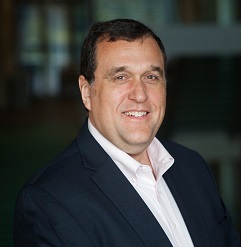 Mark Werwath, a certified project management professional (PMP), has been an engineering project manager for 15 years, managing complex system (software) and product development, IT, and manufacturing and radio network system implementation projects in four continents. He currently operates Werwath Portoflio Group, a consulting business in the portfolio management space. Prior to this role, he founded NMOVE.com, a web-based portal for project planning, project management, and resource recruiting in the software development space from 2007 to 2009. In 2000, he founded the project management consulting firm Prolima, which operated until 2003.
Mark Werwath, a certified project management professional (PMP), has been an engineering project manager for 15 years, managing complex system (software) and product development, IT, and manufacturing and radio network system implementation projects in four continents. He currently operates Werwath Portoflio Group, a consulting business in the portfolio management space. Prior to this role, he founded NMOVE.com, a web-based portal for project planning, project management, and resource recruiting in the software development space from 2007 to 2009. In 2000, he founded the project management consulting firm Prolima, which operated until 2003.
He has managed a large number of new product development projects in the aerospace business and the telecom industry. Mark has also advised numerous start-ups, including Energy Vault, FEW Spirits, Equityhub, and Highland Solutions.
Werwath’s industrial experience has primarily been focused in various businesses within Motorola where he worked for 22 years and is most well known for implementing the proprietary infrastructure technology for the Nextel network. Werwath’s work has always been technology specifically focused on (telecom) systems engineering, complex infrastructure development projects, and business process engineering.
Werwath now teaches full time at Northwestern University as a clinical associate professor. Mark is also the director of the Masters in Engineering Management program at Northwestern’s McCormick School of Engineering. Werwath had previously led (from 2005 through 2012) product strategy as executive director at WMS gaming, a medium sized gaming equipment company based in Chicago.
Werwath has a BSME degree from the University of Illinois (1981), a master’s in Engineering Management degree from Northwestern University (1987), and has completed his PhD at Benedictine University in Organizational Development (2003).
Monday Dinner Keynote
Photovoltaic Solar Power Generation Problems, Issues and Solutions
Dr. Peter Gevorkian, President, Vector Delta Design Group
Abstract:
The presentation will cover some of the most fundamental issues associated with solar power generation issues and technology solutions which have been developed, however, as of yet not been marketed.
Speaker:
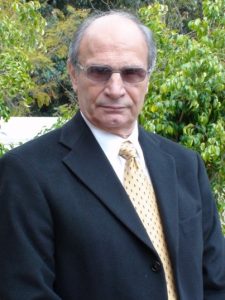 Dr. Peter Gevorkian is president of Vector delta Design Group, Inc. an Electrical Engineering and Solar Power Design Consulting organization located in La Canada Flintridge, California, specializing in industrial, commercial and residential projects. In the past several years, the company extended its expertise in the field of renewable energy sources such as solar power, fuel cells and micro-turbine cogeneration.
Dr. Peter Gevorkian is president of Vector delta Design Group, Inc. an Electrical Engineering and Solar Power Design Consulting organization located in La Canada Flintridge, California, specializing in industrial, commercial and residential projects. In the past several years, the company extended its expertise in the field of renewable energy sources such as solar power, fuel cells and micro-turbine cogeneration.
Dr. Gevorkian holds a B.SCE in electrical engineering, an M.S. in computer science and PhD. in electrical engineering. Since 1971 he has been active member of Canadian and California board of professional engineers and member of California Society of Energy Engineers and Association of Southern California Energy Engineers.
Dr. Gevorkian has taught computer science, automation control, renewable energy systems engineering and has authored several technical books in renewable energy systems design and published many technical papers for national and international symposiums.
Dr. Gevorkian was recipient of the American Institute of Architect (AIA) 2007 Engineering Merit Award for renewable energy systems engineering design and exceptional contribution to the advancement of solar power co-generation in building design and AIA 2007 Design Honor Award recipient for outstanding engineering design for the Metropolitan water District’s Museum of Water & Life Museum located in Hemet California.
In 2008 Dr. Gevorkian received the prestigious Design Merit Award from the American Institute of Architects for LEED™ accreditation for Metropolitan Water & Life Museum, Hemet, California as one of the Ten Best US Green Building Designs for 2008.
He is the author of Solar Power Generation, Solutions & Monitoring, published by The Cambridge University Press (ISBN 978-1-107-12037-2).
Tuesday Morning Keynote
Growing Atmospheric Pollution in Asian Countries: Threat to Environment Sustainability
Ramesh P. Singh, Ph.D., Chapman University
Abstract:
One third of the world population lives in Asian countries, population is still on increase. With the growing population, migration from rural areas to urban areas is going on and that has increased energy, water and food demand which impact air quality and atmospheric pollution – a threat to human health and has raised question of sustainability. In the Developed countries, various kinds of earth observing systems are placed on land and ocean that provide real time data, in contrast such observing systems are limited in Asian countries and data are not freely available. Ground and satellite observations provide valuable data at local, regional and global scale that have helped scientists to alert people for impending natural hazards on timely basis, but such forecasts are lacking in the Developing countries. An overview of sources of pollution in Asian countries and greenhouse emissions impacting air quality and climate during winter, summer and spring seasons will be presented. Different kinds of natural hazards in Asian countries associated with land, ocean and atmosphere and their short and long term impacts on Earth’s environment will be discussed. There is need of dense network of ground sensors combined with satellite data for timely forecasts for alerting population in Developing countries to save lives and to make sustainable environment for future generation.
Speaker:
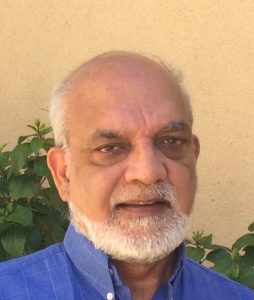 Ramesh Singh is presently Professor with the School of Earth Science and Environmental Sciences, Schmid College of Science and Technology, Chapman University, California, USA. Prior to joining Chapman University, he was Professor with George Mason University, Fairfax, Virginia, USA during 2007-2009 and Distinguished Visiting Professor (2003-2005) with the Centre of Earth Observing Space Research. He served Department of Civil Engineering, Indian Institute of Technology, Kanpur, India during 1986-2007 as Professor (1986-2007). He has supervised project work and thesis of M.Tech. and Ph.D. students in the field of Remote Sensing, Engineering Geosciences, Natural Hazards and Atmospheric pollution and Applied Geophysics. He had organized training workshop in China and India for scientists from South Asian countries. His two edited books on Natural Hazards is recently published by CRC T & F Press.
Ramesh Singh is presently Professor with the School of Earth Science and Environmental Sciences, Schmid College of Science and Technology, Chapman University, California, USA. Prior to joining Chapman University, he was Professor with George Mason University, Fairfax, Virginia, USA during 2007-2009 and Distinguished Visiting Professor (2003-2005) with the Centre of Earth Observing Space Research. He served Department of Civil Engineering, Indian Institute of Technology, Kanpur, India during 1986-2007 as Professor (1986-2007). He has supervised project work and thesis of M.Tech. and Ph.D. students in the field of Remote Sensing, Engineering Geosciences, Natural Hazards and Atmospheric pollution and Applied Geophysics. He had organized training workshop in China and India for scientists from South Asian countries. His two edited books on Natural Hazards is recently published by CRC T & F Press.
Dr. Singh has worked on all kinds of Natural Hazards (floods, cyclones, tsunami, dust storms, earthquakes, landslides, droughts, forest fires) focused in South Asia, US and Brazil,
Dr. Singh has published more than 200 publications in peer reviewed Journals, and edited several books and Proceedings of the International Conferences. He is recipients of Indian National Remote Sensing, National Mineral and Hari Om Ashram Prerit awards and a fellow of Indian Society of Remote Sensing and Indian Geophysical Union.
Dr. Singh visited Free University Berlin, Germany as an Alexander von Humboldt Fellow and Hirosaki University, Amori, Japan as a JSPS Fellow. He was Vice Chair of the International Committee on IUGG GeoRisk Commission and member of the EMSEV Bureau and is the Chief Editor of Geomatics, Natural Hazards and Risk, Associate Editor of the AGU new Journal on Geo Health, Associate Editor of the International Journal of Remote Sensing and in the past Chief Editor of the Indian Journal of Remote Sensing. His main area of interests are Natural Hazards, Atmospheric pollution, Seismic Risk evaluation and Urban environment.
Tuesday Lunch Keynote
Introducing the Grid Project Impacts Quantification Web Calculator (GridPIQ)
Karen Studarus, Pacific Northwest National Laboratory
Abstract:
A grid project, whether technology or policy added in one specific location, can have surprising and significant repercussions throughout the interconnected power system. Every project can impact the total energy consumption, voltage profiles in the distribution system, costs, mixture of fossil fuels, dispatch and so on. Benefits from these grid technologies can be significant, but unintended consequences can be surprising. Context matters — the same project can have wildly different impacts when rolled out in different places.
The Grid Project Impacts Quantification (GridPIQ) web screening tool, funded by OE’s Advanced Grid Research division, allows users to explore how technologies impact the grid (e.g., peak power, emissions, etc.) under different scenarios. It brings together publicly available data to make it easy for anyone – utilities, product vendors, policy makers, regulators, advocates – to quickly visualize how grid technologies perform, quantify project benefits, and uncover unintended consequences. GridPIQ aims to incorporate enough detail about specific grid technology and objectives, coupled with enough detail about the power system to yield insight. The focus is on transparency, modularity, ease of use, and versatility rather than precision. The tool allows users to sift through the impacts of diverse ideas quickly and with confidence, importing specifics when known and drawing on clear, relevant suggestions when not. This talk will dive into how to use GridPIQ as well as the methodologies that drive the calculator engine by stepping through some examples.
Speaker:
Karen Studarus is a Senior Power Systems Engineer and Resilience Team Lead in the Electricity Infrastructure Group at Pacific Northwest National Laboratory. Her research includes power system economics, distributed and renewable energy resources, power system flexibility. She currently manages a project to estimate the system wide impacts of smart grid infrastructure projects. She is a member of the IEEE Power and Energy Society and has been a DOE Hydropower Research Foundation Fellow. She received her B.S. in Engineering from Harvey Mudd College in Claremont, California, her M.S. in Electrical Engineering from the University of Washington (UW) in Seattle.


